How to Use a VPN to Bypass Geo-Restrictions and Censorship
20 November 2024
In today's interconnected world, the internet is like our passport to unlimited knowledge, entertainment, and communication. But what happens when your access to that world is blocked? You know the drill—you’re all set to stream your favorite TV show, but you get hit with a message that says, “This content is not available in your region.” Or worse, you can't access certain websites because they're censored by your government or ISP (Internet Service Provider). Frustrating, right?
Enter the superhero of the internet: the VPN, or Virtual Private Network. Just like a digital invisibility cloak, a VPN can sneak you past geo-restrictions and censorship without breaking a sweat. In this article, I’ll walk you through how to use a VPN to bypass these pesky restrictions and regain your digital freedom. Let’s dive in!
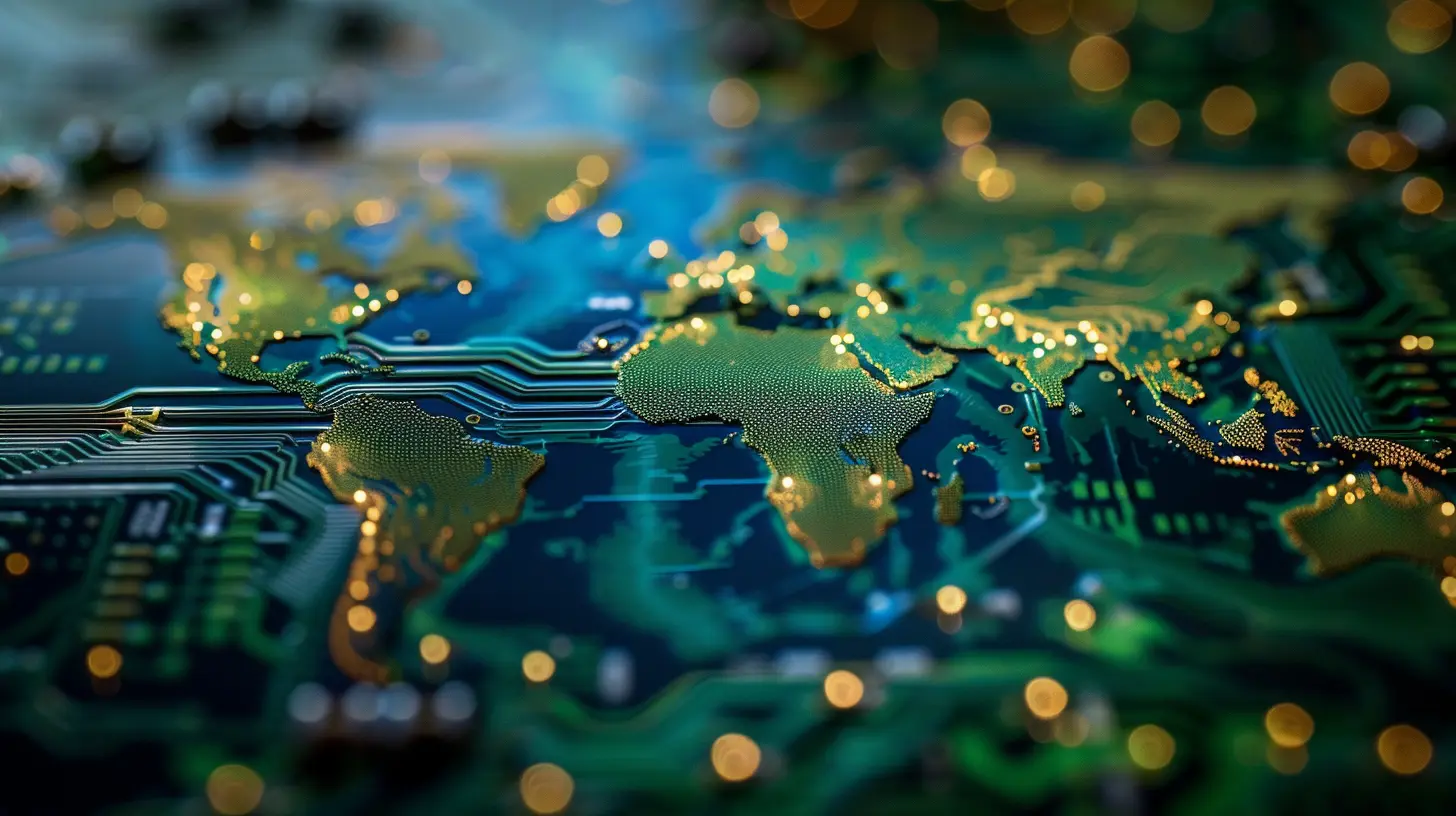
What is a VPN?
Before we jump into the how, let's talk about the what. A VPN (Virtual Private Network) is a tool that encrypts your internet connection and reroutes your online traffic through a remote server in a different location. In simpler terms, a VPN tricks websites and services into thinking you're browsing from a different part of the world.Think of it as moving stealthily through a tunnel—nobody knows where you are or what you're up to. Your real IP address (which reveals your location) is hidden, and you're assigned a new one based on the server you're connected to.
Why Use a VPN?
Here are some common reasons people use VPNs:- Access geo-blocked content: Watch Netflix shows only available in other countries, access foreign news sites, or play games not available in your region.
- Avoid censorship: If your government restricts what you can view online, a VPN helps you bypass those restrictions.
- Privacy and security: A VPN encrypts your data, protecting it from hackers, snoopers, and even your ISP.
- Anonymity: A VPN gives you a different IP address, making it tough for websites or services to track your real identity or location.
Now that we know the basics, let's get to the juicy part: how to use a VPN to bypass geo-restrictions and censorship.

How Does Geo-Blocking and Censorship Work?
To understand how to bypass geo-restriction and censorship, it’s important to understand how they work in the first place.Geo-Blocking
Geo-blocking is when content is restricted based on your geographical location. This is usually done through your IP address, which is like your online fingerprint. When you visit a website, it checks your IP address to determine where you're located. If you're in a country where the content isn’t available, you’re blocked.For example, Netflix has different libraries of content for different countries. Some shows and movies might be available in the U.S., but not in the U.K. By checking your IP address, Netflix can determine which content you're allowed to watch.
Online Censorship
Censorship is when governments or ISPs block access to certain websites or services. This might be done for political reasons or to control the flow of information. For example, some governments block access to social media sites like Facebook or Twitter, while others might restrict access to news outlets or messaging services.Censorship is typically implemented by blocking specific IP addresses or URLs, making it impossible for people within that country or region to access those sites.
Now that we understand the enemy, let’s talk about how to use a VPN to get around it.

Step-by-Step Guide: How to Use a VPN to Bypass Geo-Restrictions and Censorship
1. Choose a Reliable VPN Service
The first and most important step is to choose a VPN that suits your needs. Not all VPNs are created equal, and some are better at bypassing geo-blocks and censorship than others. Here are a few things to look for:- Server Locations: Make sure the VPN has servers in the country where the content you want to access is available. If you want to watch U.S. Netflix, for instance, you’ll need a VPN with servers in the U.S.
- No-logs policy: This ensures the VPN provider doesn't keep any records of your online activities, maintaining your privacy.
- Speed: VPNs can slow down your internet connection, so opt for one that offers fast servers.
- Security Features: Look for features like military-grade encryption, a kill switch, and DNS leak protection.
Some popular VPNs that work well for bypassing geo-restrictions and censorship include ExpressVPN, NordVPN, and Surfshark.
2. Download and Install the VPN App
Once you’ve chosen a VPN, the next step is to download and install the VPN app on your device. Most VPN services offer apps for a variety of platforms, including Windows, macOS, Android, iOS, and even Linux.Just visit the VPN’s website, download the app for your device, and follow the installation instructions. It’s usually as simple as clicking “Next” a few times.
3. Connect to a VPN Server
After installing the app, open it and sign in with your credentials. Now comes the fun part: choosing a server!If you're trying to access content that’s only available in a specific country, like Netflix U.S., you’ll want to choose a server located in the United States. Similarly, if you want to bypass government censorship, you might want to connect to a server in a country with fewer internet restrictions, such as Switzerland or the Netherlands.
Once you've chosen your server, simply click “Connect,” and the VPN will establish a secure connection.
4. Browse the Internet Freely
Congrats! You’re now connected to the VPN, and your internet traffic is being routed through the server you selected. This means websites and services will think you're browsing from that location, allowing you to bypass geo-restrictions and censorship.At this point, you can visit the website or launch the app you were previously blocked from accessing. Whether it's streaming content, visiting a censored site, or using a social media platform, you should now have unrestricted access.
5. Troubleshooting Common Issues
Using a VPN is usually straightforward, but here are a few common things you might run into:- Connection Issues: If the VPN isn’t connecting or is too slow, try switching to a different server. Sometimes servers get overcrowded or temporarily blocked.
- Blocked VPN: Some websites actively block VPNs (e.g., Netflix’s VPN detection system). If this happens, try switching to a different server or contact your VPN’s support team for a working server.
- Slow Speeds: VPNs can slow down your internet connection. If this happens, try connecting to a server that’s geographically closer to your physical location.

VPN and Legal Considerations
Alright, let’s get one thing straight—using a VPN is totally legal in most parts of the world. But, and this is a big but, using a VPN to bypass geo-restrictions or access censored content might violate the terms of service of certain platforms (like Netflix or Hulu). So always check the platform’s rules before proceeding.As for censorship, if you’re in a country with strict internet laws, using a VPN to bypass government restrictions could be a legal gray area. Always weigh the risks and, if needed, consult legal resources to know what you're getting into.
Benefits of Using a VPN Beyond Bypassing Restrictions
While bypassing geo-restrictions and censorship is one of the main reasons people use VPNs, there are other significant benefits as well:- Enhanced Online Privacy: VPNs encrypt your internet traffic, making it nearly impossible for third parties (like your ISP, hackers, or even the government) to monitor what you're doing online.
- Secure Public Wi-Fi: If you frequently use public Wi-Fi networks (think airports, coffee shops, etc.), a VPN ensures that your data is safe from potential hackers lurking on those networks.
- Avoid ISP Throttling: Some ISPs slow down your internet speed when they detect certain activities like streaming or torrenting. A VPN can hide your activity from your ISP and prevent this throttling.
Final Thoughts
Using a VPN to bypass geo-restrictions and censorship is like having a master key to the internet. Whether you want to watch that show only available in another country or access websites blocked by your government, a VPN makes it possible. Just follow the steps outlined above, and you’ll be back to enjoying unrestricted browsing in no time.Remember, not all VPNs are created equal, so do your homework before choosing one. And while a VPN can unlock a lot of digital doors, always be aware of the legal implications in your region.
Happy surfing!
all images in this post were generated using AI tools
Category:
NetworkingAuthor:

Gabriel Sullivan
Discussion
rate this article
22 comments
Brooke McGarvey
Great insights! VPNs are essential for online freedom.
March 30, 2025 at 8:31 PM

Gabriel Sullivan
Thank you! I'm glad you found the insights valuable. VPNs truly play a crucial role in enabling online freedom.
Lanae McNeal
This article provides valuable insights into using a VPN for accessing restricted content. It’s a timely reminder of the importance of digital privacy and the need to navigate censorship with awareness and responsibility.
February 7, 2025 at 7:45 PM

Gabriel Sullivan
Thank you for your thoughtful comment! I'm glad you found the article helpful in highlighting the importance of digital privacy and responsible internet use.
Summer McVicar
This article succinctly outlines the practical steps for using a VPN to bypass geo-restrictions and censorship. However, it could further explore the ethical implications and potential drawbacks of VPN use, such as privacy concerns and the impact on internet freedom.
February 1, 2025 at 7:19 PM

Gabriel Sullivan
Thank you for your feedback! I appreciate your suggestion to delve into the ethical implications and potential drawbacks of VPN use, and I'll consider expanding on those points in future updates.
Miles James
This article provides a concise overview of using VPNs to navigate geo-restrictions and censorship. It effectively outlines the key advantages, such as enhanced privacy and access to global content. However, it could benefit from a deeper exploration of potential risks and ethical considerations surrounding VPN usage. Overall, a practical guide for users.
January 24, 2025 at 12:01 PM

Gabriel Sullivan
Thank you for your thoughtful feedback! I appreciate your suggestion to delve deeper into the potential risks and ethical considerations of VPN usage—I'll consider this for future updates.
Soleil Willis
Intriguing insights! Excited to explore how VPNs can enhance online freedom and access to global content.
January 19, 2025 at 1:03 PM

Gabriel Sullivan
Thank you! I'm glad you found it intriguing. Enjoy exploring the benefits of VPNs!
Blaze Gonzalez
Great article! Navigating geo-restrictions and censorship can be frustrating, and your clear, concise guide on using a VPN is incredibly helpful. It's empowering to have the tools to access information freely. Thank you for sharing this valuable insight!
January 16, 2025 at 12:01 PM

Gabriel Sullivan
Thank you for your kind words! I'm glad you found the guide helpful in navigating these challenges. Your feedback means a lot!
Leah Pace
Thank you for this informative article! It clearly outlines the benefits of using a VPN for accessing restricted content. I appreciate the practical tips and advice provided. Looking forward to exploring more about online privacy and security.
January 12, 2025 at 7:19 PM

Gabriel Sullivan
Thank you for your feedback! I'm glad you found the article helpful. Exploring online privacy is important, and I hope you enjoy your journey!
Selkie Roberson
Unlock the world! Just remember, with great VPN power comes great Netflix responsibility!
January 9, 2025 at 11:30 AM

Gabriel Sullivan
Absolutely! A VPN enhances your streaming experience, but it’s important to use it ethically and respect content licensing agreements. Enjoy responsibly!
Astranor McDonald
Unlock the internet's full potential! Embrace VPN technology to break free from geo-restrictions and censorship, empowering you to access information and connect globally without limits.
January 2, 2025 at 9:40 PM

Gabriel Sullivan
Thank you for your enthusiasm! VPNs are indeed powerful tools for accessing information freely and connecting with the world.
Fable McEvoy
Unlock a world of possibilities with VPNs! Embrace the freedom to explore diverse content and connect globally without barriers. Empower yourself with the tools to navigate the internet securely and enjoy a richer online experience. The future is limitless!
December 30, 2024 at 8:37 PM

Gabriel Sullivan
Absolutely! VPNs truly open up new horizons for online exploration and secure browsing. Thank you for highlighting their importance!
Selkie McCune
Embrace the freedom! VPNs unlock a world of endless possibilities!
December 24, 2024 at 8:17 PM

Gabriel Sullivan
Absolutely! VPNs empower users to explore content freely and securely, making the internet a more open space for everyone.
Kaitlyn McAleer
Great article! Your tips on using a VPN for geo-restrictions and censorship are incredibly helpful and informative.
December 19, 2024 at 9:44 PM

Gabriel Sullivan
Thank you! I'm glad you found the tips helpful!
Helen McLain
Great tips for online freedom! Thanks!
December 16, 2024 at 3:40 AM

Gabriel Sullivan
Thank you! I'm glad you found the tips helpful!
Kason Rhodes
Great article! Using a VPN is an effective way to bypass geo-restrictions and access blocked content. Your step-by-step guidance is clear and informative, making it easy for anyone to enhance their online freedom securely.
December 2, 2024 at 9:40 PM

Gabriel Sullivan
Thank you for your positive feedback! I'm glad you found the article helpful in enhancing online freedom.
Finnian Thompson
Great insights! Appreciate the clear guidance on using VPNs effectively.
November 28, 2024 at 1:56 PM

Gabriel Sullivan
Thank you! I'm glad you found the guidance helpful.
Olympia Cole
Unlock the internet's full potential with a VPN! Bypass censorship and geo-restrictions effortlessly—because who doesn't want to access global content freely?
November 24, 2024 at 1:58 PM

Gabriel Sullivan
Absolutely! A VPN is a powerful tool for accessing global content and enhancing online privacy, making it easier to navigate around censorship and geo-restrictions.
Colton Simon
Unlock a world of possibilities with a VPN! Bypass geo-restrictions and censorship to access the content you love. Empower yourself and explore freely—connect, discover, and enjoy your online journey!
November 22, 2024 at 6:01 AM

Gabriel Sullivan
Absolutely! A VPN is a powerful tool for accessing restricted content and enjoying a freer online experience. Dive in and explore your options!
Isadora Benson
Geo-restrictions and censorship are outdated. Embrace the freedom a VPN offers—it's your digital right to access what you want, when you want. No apologies for wanting the internet unrestricted!
November 21, 2024 at 6:05 AM

Gabriel Sullivan
I completely agree! A VPN empowers users to reclaim their digital freedom and access the internet without barriers. It's crucial for fostering an open and unrestricted online experience.
Thane Jimenez
Thank you for this insightful article! Understanding how to use a VPN effectively is crucial in today's digital landscape. Your clear guidance empowers users to access information freely and securely.
November 20, 2024 at 11:25 PM

Gabriel Sullivan
Thank you for your kind words! I'm glad you found the article helpful in navigating VPN use for better online access and security.
Astoria Reyes
Great insights! This article effectively highlights how VPNs can empower users to access restricted content and enhance online privacy. A must-read for anyone navigating geo-restrictions and censorship challenges!
November 20, 2024 at 7:55 PM

Gabriel Sullivan
Thank you for your feedback! I'm glad you found the insights valuable.
Zevon Cox
Unlock the world; let freedom's digital winds guide you.
November 20, 2024 at 11:24 AM

Gabriel Sullivan
Absolutely! A VPN is your key to unlocking global content and enjoying true online freedom.
Odessa McConkey
While VPNs provide valuable privacy and access, users should remain cautious of potential legal repercussions and the limitations of encryption.
November 20, 2024 at 4:05 AM

Gabriel Sullivan
Thank you for your comment! It's essential to be aware of both the benefits and potential risks of using a VPN. Staying informed is key to making the most of privacy tools.
MORE POSTS
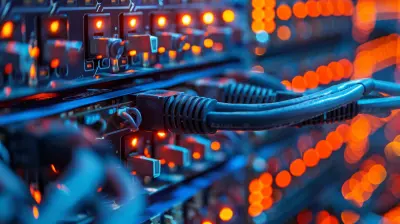
Understanding IPv6: Why It Matters for the Modern Internet

Cutting-Edge E-Readers for Book Lovers on the Go
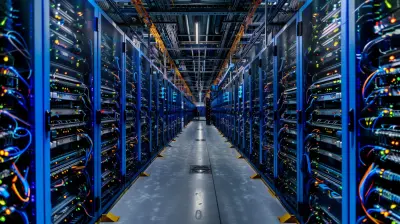
The Role of Open Source Software in Data Center Innovation

Exploring the Latest in Battery Technology for Gadgets

How AR Glasses Are Shaping the Future of Fitness Apps
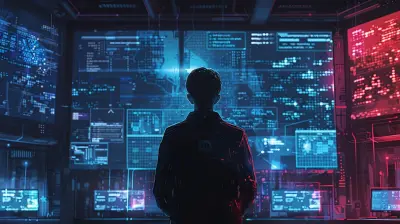
Protecting Personal Data in a World of Constant Cyber Threats
Can Fitness Trackers Replace Personal Trainers? Here’s What Experts Say

Cloud Security in the Age of Big Data
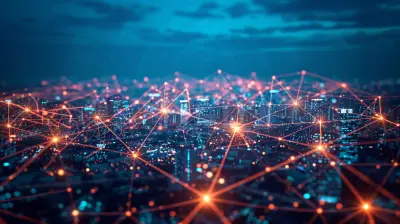
The Evolution of Networking: From 3G to 5G and Beyond

Why Holographic Displays Could Be the Future of Entertainment

Wireless Earbuds That Offer Stunning Sound Quality Anywhere

The Best IoT Devices to Modernize Your Office
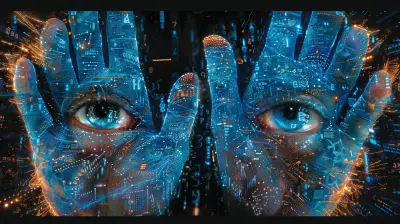
Biometric Tech: Unlocking the Next Generation of Security